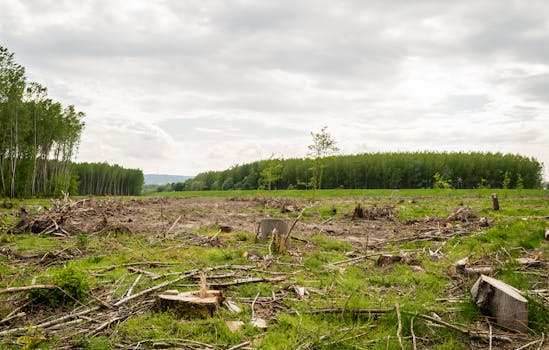
Introduction

The impact of climate change on global ecosystems is profound and alarming. As the planet warms, ecosystems are forced to adapt, leading to significant changes in biodiversity and habitat stability. This article delves into the various ways climate change influences ecosystems worldwide.
Disruption of Biodiversity

Climate change has led to shifts in species distribution as organisms seek suitable habitats. Many species are unable to adapt quickly enough, leading to population declines and extinction. Coral reefs, for instance, face bleaching due to rising ocean temperatures, devastating marine biodiversity.
Altered Habitats

Changes in temperature and precipitation patterns affect the habitats of numerous species. Forests, wetlands, and grasslands are changing, impacting the flora and fauna that depend on these ecosystems. Increased frequency of extreme weather events further complicates habitat stability.
Impact on Food Chains

As ecosystems shift, so do the food chains within them. Changes in species populations can lead to overpopulation or extinction of certain species, disrupting the balance of ecosystems. For example, the decline of pollinators can have cascading effects on plant species and agricultural productivity.
Conclusion

In conclusion, the impact of climate change on global ecosystems cannot be overstated. The loss of biodiversity, alteration of habitats, and disruption of food chains pose significant challenges for the future. Immediate action is necessary to mitigate these effects and protect our planet’s ecosystems for future generations.



